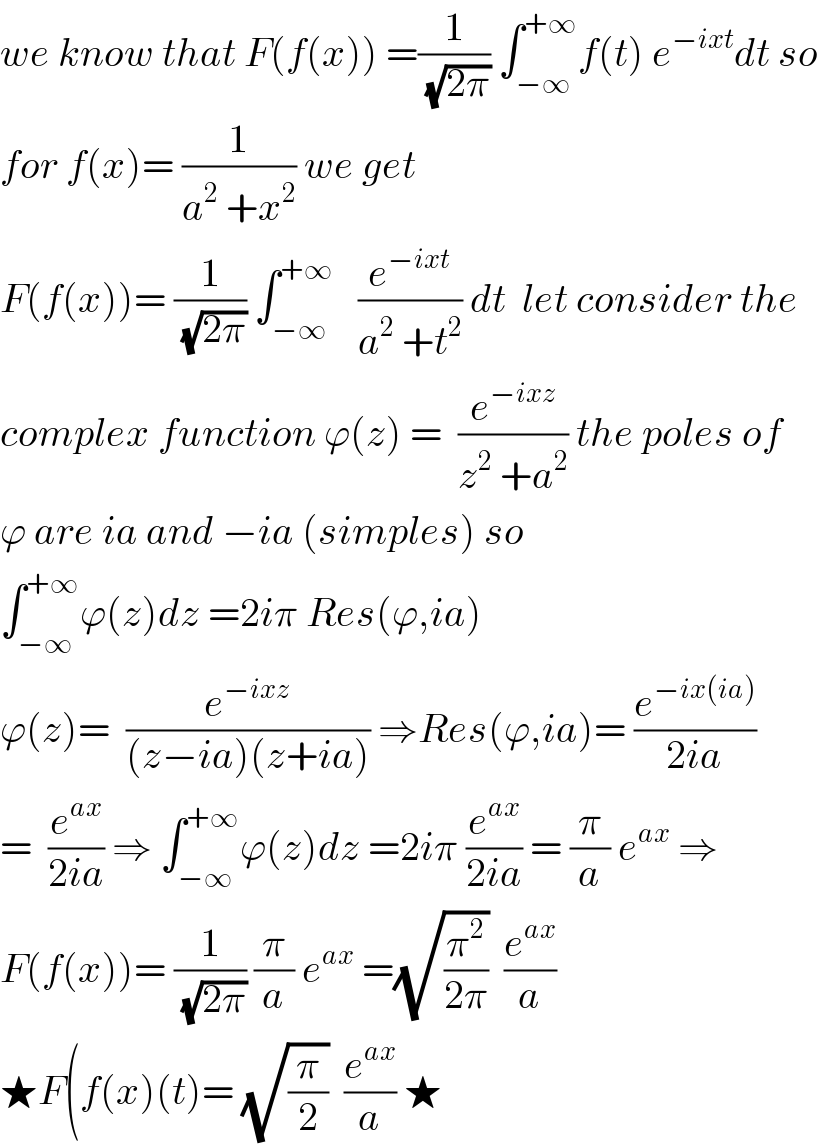
Question and Answers Forum
Question Number 33704 by math khazana by abdo last updated on 22/Apr/18

Commented byprof Abdo imad last updated on 27/Apr/18

| ||
Question and Answers Forum | ||
Question Number 33704 by math khazana by abdo last updated on 22/Apr/18 | ||
 | ||
Commented byprof Abdo imad last updated on 27/Apr/18 | ||
 | ||